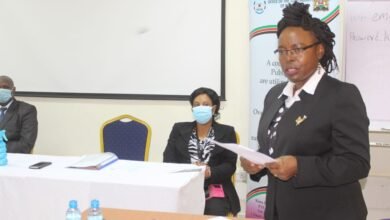
Nigeria’s major unions on Sep. 26 called for a national strike next week in protest at the government’s response to tackling the rising cost of living.
The National Labour Congress (NLC) and the Trade Union Congress (TUC) said they had to call an indefinite strike on October 3 because the government failed to address their concerns in talks over how to ease the financial burden for Nigerians.
“The government has totally abdicated this responsibility and has shown gross unwillingness to act abandoning Nigerian people and workers to excruciating poverty and affliction,” they said in a joint statement.
Africa’s largest economy has seen living and transport costs heavily impacted after the government ended a petrol subsidy and a free fall of the naira currency, leading to a sharp devaluation of the local money.
Inflation is at 25 percent while fuel costs have tripled since President Bola Ahmed Tinubu ended the subsidy when he came to power in May calling the move part of necessary reforms to improve a struggling economy.
The National Labour Congress (NLC) and the Trade Union Congress (TUC) called on all workers to stop activities from October 3 and said they would organise street protests.
Tinubu administration
Tinubu’s administration acknowledges the difficulties and says it distributed funds to state governments to help offset the impact of the economic reforms. Other measures include providing transport options and small business loans.
The NLC brings together unions for many industries from nurses to road workers and printers while the TUC represents senior bank workers and high school teachers among others.
Nigerian unions have threatened or gone on strike in the past only to come back into negotiations. It was not clear how much traction next week’s industrial action would gain.
The NLC and TUC called a strike in August over the same issues, with many businesses, government offices, markets, banks closed for a day in the capital Abuja. Strike impact in the economic capital Lagos was more mixed.
Tinubu said ending the fuel subsidy was essential as it cost the government billions each year to keep the price of petrol artificially low.
Nigeria, a member of the OPEC oil exporters’ organisation, is a major crude producer but lacks refining capacity and is forced to import most of its fuel requirements.





